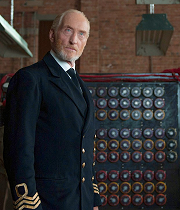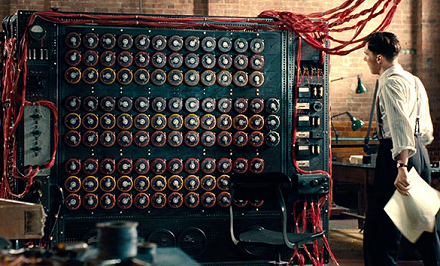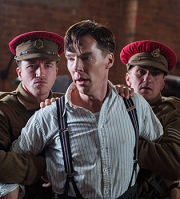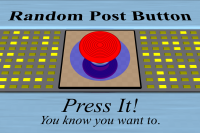 I finally watched The Imitation Game last night. I have a great deal of regard for Alan Turing, and I’ve always enjoyed codes and cryptography (the story of breaking the Enigma machine is especially fascinating), so I was really looking forward to finally seeing it.
I finally watched The Imitation Game last night. I have a great deal of regard for Alan Turing, and I’ve always enjoyed codes and cryptography (the story of breaking the Enigma machine is especially fascinating), so I was really looking forward to finally seeing it.
And… I didn’t like it. A lot. Turns out it reflects everything I see as wrong with movies — and with society — in these social media-driven, over-amped, uncritical modern era days.
Watching the movie to get away from politics, it dragged me right back for having the same lack of authenticity, made up conflict, and disregard for history.
Let me put it this way:
If you’d like to watch Benedict Cumberbatch channeling his autistic Sherlock (without Bilbo for balance), and Keira Knightley wasted in a role beneath her talent, plus a lot of silly manufactured drama and conflict that never happened, and if you want to know as much (or little) about Enigma after as you did before, then this is the movie for you.

The real Alan Turing.
If you’d like to know a bit about who Alan Turing really was, or about the Enigma machine and how it was cracked, then you’ll have to look elsewhere.
Or if you want to watch a fairly mediocre romantic comedy without the romance (because one of them is gay and both care more about the work), staring two watchable and fun actors, and you don’t really care about Turing or Enigma (or history) that much, the movie might work for you.
It sure didn’t with me. Possibly because I know a bit about Turing and about Enigma and how it was cracked. Possibly because I expect realistic historic drama to be… well… you know… realistic. And historic.
Turing was not, for example, nearly autistic, but had friends and a sense of humor. Cumberbatch seems to be reusing his Sherlock character, which is either bad acting or bad directing (I suspect the latter).
On top of that, for a movie called The Imitation Game, it never actually explains what the Imitation Game really is. No, it’s not what most people think of as the Turing Test (as the script suggests)! In fact, I’d say it’s something of an over-reach for the movie to include that aspect of Turing’s work at all. It had no bearing on Enigma and didn’t come along until the 1950s.
Bottom line is that the movie had almost no upside for me and lots of downside.

The real Joan Clarke.
Let me start with the misuse of Keira Knightley’s character, Joan Clarke (who did exist and who was involved in codebreaking at Bletchley Park).
The newspaper crossword recruitment scene is largely fabrication; Clarke was recruited, and Turing had nothing to with that or the crossword puzzles.
When Clarke is introduced, it’s suggested she’s sharper than Turing, and that the movie will include a gender equality message along with the sexual preference equality message.
But neither of those come to any real fruition. It’s just a way to wedge a female co-star into the film. (Clarke’s life story would make a decent biopic, I think. For that matter, the whole story of the women codebreakers at Bletchley is a good one!)
The movie shows Turing forcing his way into the program at Bletchley against Commander Denniston’s will. In fact, the Commander recruited Turing and had high regard for him and his ability. The cartoonish asshole shown in the film, who wants to shut down Turing’s work for not showing results, is pure fabrication.
Offensively so. It’s utter bullshit, and it makes me mad.

Commander Ogre.
The movie offers a comic book presentation of the military ogre-boss and the lone wolf maverick who alone can solve the problem despite the hectoring of co-workers and management.
It’s childish and, in this case, simply not at all true.
One particularly egregious scene involves the Commander, along with some soldiers, storming into Turing’s workshop (literally breaking open the door) and, despite Turing’s protests, shutting down the machine by pulling exactly the right three plugs.
(Extremely well-trained soldiers don’t you think? I guess I should be happy they didn’t shoot the machine.)
Manufactured conflict that [a] didn’t happen and [b] stood out like a sore thumb as just plain bad script writing. The military simply doesn’t behave that way. It was a stupid scene.
Another scene that really pissed me off involves the code team cracking one of their first messages and realizing a British passenger convoy is targeted by German U-boats. Horrors! Not just military lives, but civilians! And one of the team, his brother is on one of the boats! Oh, no, Mr. Bill!
The team determines (conflict, conflict, conflict) that they can’t do anything to warn anyone. Even the anguished brother is convinced (and then the movie just moves on).

The Enigma machine.
The scene exists to explain that cracking Enigma was a closely (very closely!) guarded secret because, if the Germans knew, they’d just change the code system. That means you have to be very careful about how you use information gained from the cracked codes. Your reactions have to look like normal operations or that the info came from some other source.
The reality is that the codebreaking team had nothing to do with determining the use of the information. That was all determined at a much higher level (of military leaders with a big picture). Again, this seems incredibly obvious to me, and the scene was so wrong that it hurt my head.
Breaking Enigma was a group effort involving a lot of people. The big break through, the idea of looking for “Heil Hitler” in the message, was known from the beginning. (Looking for a known bit of text, a crib, is a well-established aspect of codebreaking.) That big break through never happened.
Since they never really explain anything about the Enigma machine, viewers probably wouldn’t have any context for the other key thing that helped them crack it: the fact that a letter never mapped to itself.
Instead, Turing has a line about how it takes a machine to beat a machine (which is true enough), and the movie presents all that as this lone effort to build The Magic Machine. We’ve never let in on any of the process involved. We’re never given any real clue how the machine works (’cause it’s magic).

The movie presents a Rocky-like fantasy of individual effort (without ever really showing what that effort involves) combined with the magical “Ah-Ha!” moment that leads to victory after all the struggle and defeat. (It’s actually kind of a sports movie.)
In fact, many people worked on the design of the Bombe, although Turing did make key contributions to that design. Further (and the film does touch on this with a single line from Turing), the Bombe was based on an existing Polish codebreaking machine.
The real story about the Enigma and the Bombe and Alan Turing is, at least to me, plenty fascinating without throwing out most of it and using what little remains as scaffolding for a fairly light-weight period piece. Apparently if you throw in some sort of obvious message, people are very impressed.

Conflict! Emotion! Grabbing!
The fault probably lies with script writer Graham Moore. This appears to be his first movie script. According to Wikipedia, his only other credit is one episode of a short-lived TV series, 10 Things I Hate About You. (IMDB says he’s also done two shorts.)
Here’s one example of how bad the script is. At one point Turing says he has a pollen allergy. Which he seems to think is some sort of preference determined by his brain. As someone who suffers from hay fever, let me tell you: it ain’t psychosomatic!
I think the bottom line is that, if you’re going to write a historic account of someone like Turing, you’d better have more of a mind like his. If Moore actually does understand any of Turing’s work or history, it’s not at all reflected in his script.
Which is based loosely on Alan Turing: The Enigma, by biographer (and mathematician!) Andrew Hodges. I suspect that book would be worth reading.
As far as I’m concerned, the film wasn’t worth watching. I got nothing from it but aggravation. I give it my lowest rating: Ugh!













February 11th, 2016 at 8:20 pm
Maybe it’s assumed that most folks won’t know the truth (I sure don’t) as you do. Shame. ❤
Diana xo
February 12th, 2016 at 12:09 am
I’m sure you’re right they assume that, and it is shameful! Folks not knowing something isn’t a license to lie to them.
It’s one thing to leave something out. Saying little or nothing about the Enigma or Bombe machines and focusing on the human element is a valid artistic choice. But making up stuff that’s the opposite of true — creating completely false impressions of historical figures — really bothers me. What’s the point? Why not tell the truth?
This is one case where the true story is just as good (if not better) than any made-up ordinary soap-opera stuff.
February 12th, 2016 at 7:56 pm
Yeah why make stuff up? I don’t get it either Smitty.
February 13th, 2016 at 10:01 am
Yeah, go figure! ❓
February 12th, 2016 at 3:03 am
Now I feel silly for having enjoyed the film. I didn’t know any of the details of the history, so had to accept what happened at face value. I thought that some of the scenes were unlikely, but accepted them as they were ways to dramatise what might otherwise have been dull. I think that to be fair you have to allow screenwriters to turn real life into a “hero’s journey”. The worst crime for a screenwriter is to write a boring script.
February 12th, 2016 at 10:23 am
“Worst” might be a bit hyperbolic, but certainly a key goal for a writer is to be engaging. A problem is that what bores some engages others (and vice versa). For example, I find the details about the Enigma machine and how it was cracked fascinating. But yet another soap opera about people doing things I’ve seen a thousand times? To me, that’s boring.
That said, I’ve always maintained that a good writer can write a script that engages the average viewer without compromising on the intelligence of that script, without disengaging the cognizant viewer. I’ve seen it done time and time again, so I know it’s possible.
“I thought that some of the scenes were unlikely, but accepted them as they were ways to dramatise what might otherwise have been dull.”
Have you ever heard it said that a really good actor can bring tears to an audience by reading a phone book? I’m not sure it’s entirely true, but it’s close to true. The combination of “live” image (along with sound) is very powerful.
Cinema, especially, is an artform with tremendous power of presentation. A good filmmaker can make a (metaphorical) “phone book” interesting through cinematography and editing.
For example, consider a scene involving a person making and eating breakfast. I can shoot it to make them seem hurried, desperate, frantic, scared, threatening, lonely, bored, crazy, or a whole host of other things. What you shoot, how you shoot it, how you edit it, what you put in the soundtrack; these are all powerful tools for the director to tell a story.
What am I telling you if I include close-ups of a clock, include a ticking clock sound, make the pace of editing very slow, and use a lot of static medium and long shots? Versus none of the clock stuff, lots of tight shots and close-ups, rapid editing, and a rock-n-roll soundtrack? (Imagine that the actor’s actions are identical in both cases.)
When a director and writer present a scene to you that seems unlikely, that’s your brain telling you they didn’t do an acceptable job. (It’s a good way to not get fooled by dream sequences. Turn that WTF?! moment into an “Ah-ha! Dream sequence moment.” XD )
(Or do you remember all those moments the first time you watched The Sixth Sense? Time after time Shyamalan rubs your nose in the weirdness. And time after time you excuse it and let the story flow on. But each one of those was a deliberate signal. (If you ever watch the movie again, look for use the red to signify a ghost scene.))
The brain, as you know, is an amazing pattern-matching machine. I submit that years of watching badly made stories has trained us away from recognizing when the makers are bad or lazy. (I suspect that the need to produce so much content as is needed these days is directly responsible for there being so much crap. Simple math, really. More wheat equals more chaff.)
His hiring scene, her hiring scene, the aggressive shutdown scene, the spy scene (the spy was real, but Turing likely never met him), the letter to Churchill (which was actually written by the team to get more funding for the Bombe), much of the childhood scenes, the bit with the detective in “modern day”, and the way his chemical castration affected him,… these all rang false because they were false.
What’s ironic is that, IIRC, the first words we ever hear are Turing’s (1951) voice-over asking, “Are you paying attention?”
“I think that to be fair you have to allow screenwriters to turn real life into a ‘hero’s journey’.”
I don’t disagree, but I do think it can be done without resorting to a cliched utterly false mythology. At root, my complaint is that the writer and director did a very poor job.
Is it possible you were primed by publicity to think the movie was extraordinary? You may have been primed to accept it as much as you did.
I suspect that, because it was a “serious” film about an important historical figure, and because it threw in a message liberals loved, it was viewed as a “significant” film. And, per our last conversation, perhaps the bar has sunk so low that by today’s standards the film was “very good” (I nearly choked trying to write those words 😮 ).
It was definitely much better than just about any recent action film. (I turned off the new Mad Max movie at the 40-minute mark because I was so thoroughly bored!)
But, for me, every major beat in the film rang badly false. (OTOH, I did watch the whole thing! 🙂 )
February 12th, 2016 at 11:39 am
You are entirely correct in everything you write, Wyrd. (At least, that is my working assumption, as I’m too lazy to check the facts myself 🙂 ) I’m not a complete pushover when it comes to films, though. I often stop watching movies or TV series if they don’t engage, and have even walked out of cinemas after spending good money on a ticket. I walked out of Inception, for instance.
February 12th, 2016 at 2:01 pm
“You are entirely correct in everything you write, Wyrd.”
Well that’s music to my ears! But… are you sure you’re okay? 😮
“I often stop watching movies or TV series if they don’t engage,…”
Yeah, I’ve been doing that a lot more in my dotage than I ever used to. As someone who studied film and TV production, I’ve always had a kind of “well, let’s see what happens” attitude that kept me watching (sometimes to my regret).
Actually walking out of a film back then (in college) was huge and foreign to me. I remembered it and talked about it for years! 🙂
But I’ve gotten much more jealous of my dwindling time and not willing to spend it recklessly.
“I walked out of Inception, for instance.”
That movie seems to have turned off a lot of people. I thought it was okay (yeah, just okay). What did you dislike so much you walked out?
(I haven’t seen it, yet, but I have a feeling that, had I paid for it, I might have walked out of Interstellar. Everything I’ve seen makes the movie look like a total flop in my book. Disappointing, ’cause I liked Nolan’s earlier work. But love conquering black holes and time and space? Oh, hell, no. That was part of what made Disney’s The Black hole so stupid. Plus how deGrasse Tyson called it the least scientifically accurate movie of all time. 😮 )
February 13th, 2016 at 5:40 am
I realised that Inception was wasting my time because it wasn’t making me feel anything. Scenes that should have contained suspense, didn’t. That was because the screenwriter seemed to have no understanding of how to write suspense into a scene. Instead of dangling something in front of an audience and making them desperate to find out what happens, everything just happened straight away. Yawn.
February 13th, 2016 at 10:14 am
Heh, yeah, looking back on it, that’s a pretty fair description (the screenwriter was Nolan himself). There were some tension points, but I can’t say I ever really cared about any of them. I thought the whole business with his dead wife and kids was a detraction (don’t know if you stayed long enough to see that).
I think maybe I was dazzled by the CGI (which was something of a departure from the usual, so really dazzled by the production design rather than the actual CGI, which was neither better nor worse than any other these days). And maybe my regard for Nolan, but after Interstellar I’ve lost a lot of that.
Damn, I really liked Memento and The Prestige… but then I realize I liked each of his Batman movies less than the one before it (really disliked that last one). And he wrote the story for Man of Steel, which I thought was utter trash and which forced me to reconsider my regard for director Zach Snyder (who blew me away with Watchmen).
Ah, how the mighty have fallen. XD
February 13th, 2016 at 5:42 am
I haven’t watched Interstellar, for the reasons you identified. I’m not going to watch it.
Although… love conquering time and space? Hell, yeah!
February 13th, 2016 at 10:16 am
Ha! Well, yes. XD
(But good luck getting out of a black hole!)
February 13th, 2016 at 1:46 pm
I had very similar feelings about the film, although I suspect I enjoyed it more than you because I have no knowledge of code. As you say, the real story is interesting on its own. There was no need to fabricate things! Why oh why?
And the other thing that irks me…people could come away from the film thinking they’ve learned history. All the folks I’ve spoken to online have done some research or at least felt that something was fabricated, but I doubt that holds true for all viewers.
February 13th, 2016 at 2:09 pm
Well, I didn’t enjoy it at all, so I’m sure you did! 🙂
And I’m definitely one of those who spent time after watching the movie doing research whether the apparent nonsense I’d just seen was as big a load of hooey as it seemed. (Yep. Totally.)
Whadda disappointment! 😡
November 24th, 2016 at 8:41 am
Alright, so I love this film because of how Tyldum told a story with so much depth and hidden meaning with the whole machine/human mind metaphor and the underlying issues of homosexuality at play. But I was unaware of the true events which occurred and the many changes the director made in order to please the audience. Please read my review and feel free to tear it to shreds. Any feedback is good feedback and I’m new to the blogging seen and could use all the help I could get. Thank you for inspiring me to do further research into the true historical events and the true story of Alan Turing. I look forward to reading your material in the future. https://reelviewsbysara.wordpress.com
November 24th, 2016 at 12:12 pm
Hello Ms McIntyre; welcome to my blog. Welcome also to the blogging world!
Your blog tells me you’re a film student! That certainly gives us a lot to talk about. Or argue about; it looks like we have somewhat different tastes. For instance, in this case we see The Imitation Game on opposite sides of our ranking scales! XD
But I’m not sure you want me to tear your review to shreds! I’m a little like Turing (or Holmes) in that I disdain social white lies. Metaphorically: Never ask me if the pants make one look fat,… unless one really wants to know! Perhaps in excruciating detail.
Let me instead start by encouraging you as a blogger. It can be thankless in terms of rewards, but if you have the soul of an artist and feel that drive to express yourself, then the real reward is the writing itself. And like any skill, it takes lots of practice.
(In the past many labored over their creations in private, and those works never saw the light of day. The modern world lets us scribble on the interweb wall. We’re all publishers now! 😀 )
That said, here’s the other shoe: Your review gushes about how good the film is — which is fine; I do the same for films I really love — but never provides specifics about exactly why you loved it so much.
I would have liked to know about characters or scenes or cinematic devices touched you or stood out. Show me the details that convinced you this is a perfect film.
On the objective analysis side of things you write about metaphor and structure and code words. But then leave it to the reader to figure out exactly what you mean!
That’s not our job, that’s your job! 😛
This is your opportunity to make a case for a film you loved and think is perfect! It is, in a sense, like arguing before a jury. Your case needs details to convince us!
FWIW, I distinguish rather strongly between my feelings about a piece and my judgement of it. The former is entirely subjective, the latter is as objective as possible and depends on experienced analysis. It’s the difference between what one likes and what is good.
And it can be very difficult for people to acknowledge that something they like isn’t actually that good, or that something they don’t like is actually quite good. Totally works both ways!
November 24th, 2016 at 1:23 pm
I wish I had time to fully respond to all of this right now but for the time being I’ll just say thank you so much for taking the time to visit my blog and listen to what I have to say, and taking it even further and responding with something like this! It’s very helpful to hear your opinion. It’s funny that you say I should include as much detail about what i love most but the reason I didn’t get into it is because I don’t want anyone reading my review who hasn’t seen the film yet, and wind up revealing some of the best parts of the film. I tried to keep it very generalised in the odd chance that they’ll be so intrigued they’ll have to go and find out what I’m talking about, not because I’m trying to make their lives difficult, but because I genuinely want them to experience something similar to what I did when I watched. I do not hope they will translate everything they see exactly as i did, but I want them to experience the film without really knowing what to expect to take away from the story.
On another note, I completely understand where you are coming from in a sense that if a film claims to be telling a true story based on real events, it should stay completely loyal to it. They have no business manipulating the story into something it is not purely to gain more of a response from their audience. However, I can also set it aside as an independent story and say respectively that Tyldum chose to tell a certain story in a certain way and those particular choices he made, had a strong impact on me. Besides, the parts of the story that were loyal to the truth are what spoke the greatest volumes to me. For example, the sodomy laws were as real, bullying is real, the fact that the team had to choose who lived and who died was real, the probability that Turing was treated as an outcast all his life was real, as is the fact that society will always deem the things they cannot understand as something lesser. Yes, Tyldum may have twisted the story in ways completely unnecessary, but fortunately for me, I see more importance in appreciating what the narrative made me feel and how it made me think. Thank you again for taking the time to share your thoughts and discussion. Have a lovely rest of your day.
November 24th, 2016 at 5:06 pm
“I don’t want anyone reading my review who hasn’t seen the film yet, and wind up revealing some of the best parts of the film.”
Okay, fair enough! I think you can do that even better by including a few details. Just a few to excite us with your excitement. Maybe, like, your eighth and ninth favorite scenes. 😀
[FWIW, as examples, here are two gushy reviews I wrote: Grand Canyon and Guardians of the Galaxy. I do explore the movies a bit, but leave plenty for the viewer to experience. The first actually discusses the ending, but — trust me — it’ll still hit you like a brick even so. The second barely mentions the plot but provides a flavor that, I think, tells someone if they’ll relate to the movie. “If you liked this, you might also like…”]
“Tyldum chose to tell a certain story in a certain way and those particular choices he made, had a strong impact on me.”
Those — the particular choices and their impact on you — are the sort of things many readers want to see!
Obviously, it does depend on whether you are encouraging those who haven’t seen the film or celebrating with those who have. Those are entirely different approaches!
“Besides, the parts of the story that were loyal to the truth are what spoke the greatest volumes to me.”
Absolutely!
The thing is, the film reads differently if one knows about the Enigma, the Bombe, and Turing. Some of the things you cite as loyal to the truth were actually made up by the writer.
That’s kind of my key issue, really. The movie doesn’t provide an honest or accurate view of Turing or events. I believe it’s possible to tell the story you see there — the one that attracts you and affects you — without being quite so dishonest in the process. The real story has all the right elements.
You were willing to see past that (perhaps due to not knowing about Turing or Enigma), so for you the movie worked, and that’s great! I just don’t have that skill. Too detail-oriented, perhaps! 😀
January 5th, 2021 at 10:10 am
[…] The Imitation Game is getting increasing attention. Interestingly, it’s a very negative review (maybe the pendulum swung on Cumberbatch). […]
July 4th, 2021 at 2:13 pm
[…] The Imitation Game (536/108) […]
August 15th, 2023 at 3:12 pm
[…] The Imitation Game (669): Another movie review that, like the above post about Grand Canyon, is noticeably more popular than other my posts about movies. Note the reduced scale, but I’m still surprised at the post’s popularity. Note that, unlike the Grand Canyon post, this review is unfavorable. […]
January 17th, 2024 at 4:00 pm
[…] The Imitation Game, my rather negative review of the same-named 2014 movie starring Benedict […]
July 4th, 2024 at 6:09 pm
[…] The Imitation Game (81) […]